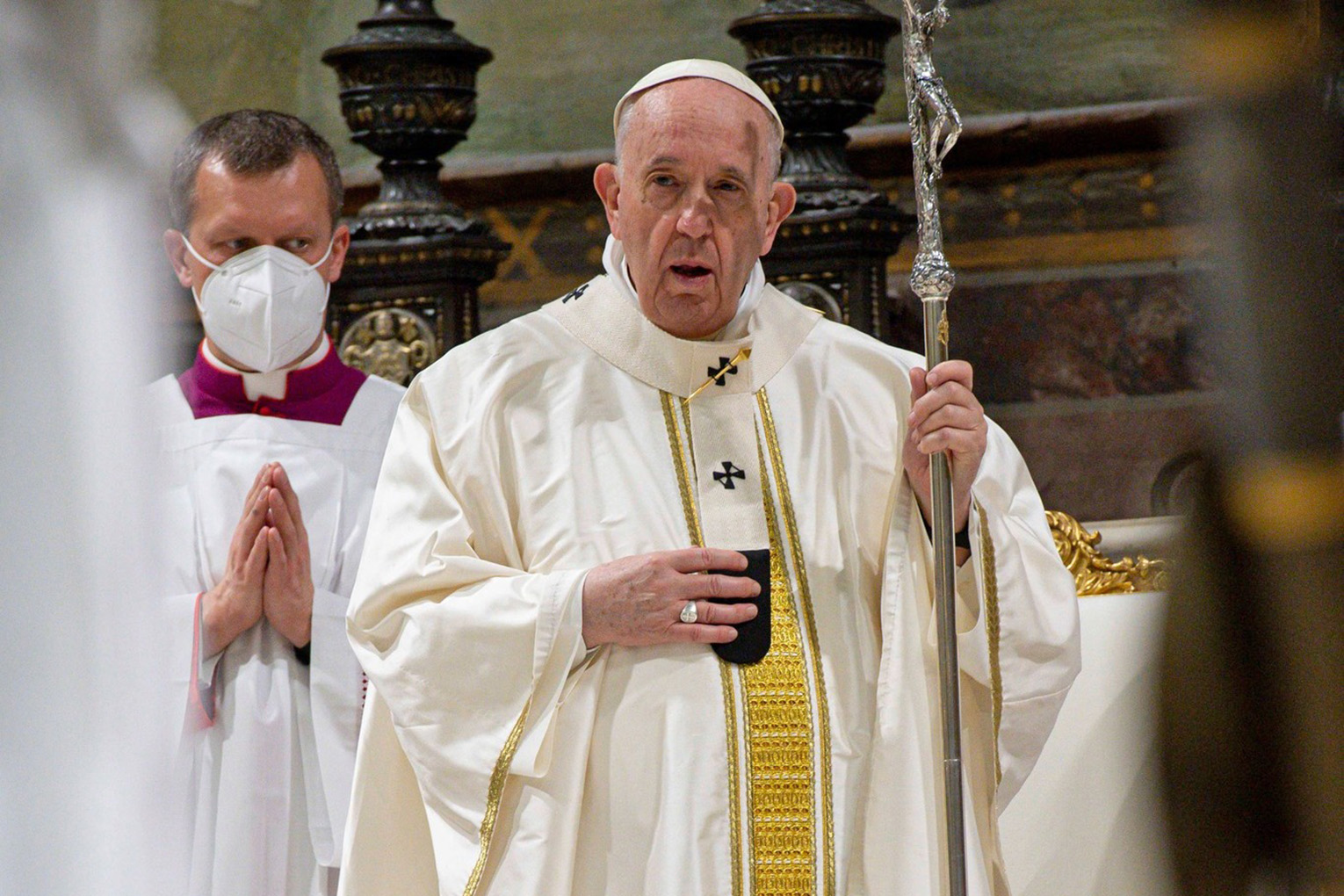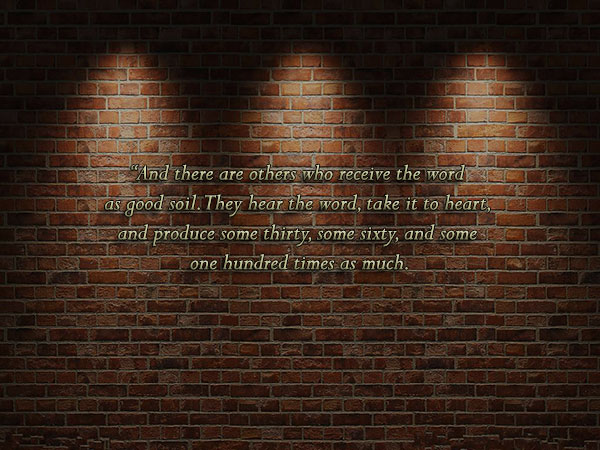(Bp. Ambo’s keynote speech during the awarding ceremony of Cardinal Sin Catholic Book Awards at the 37th Manila International Book Fair (MIBF) Sept. 14, 3:00 p.m. at the Stage Area of the SMX Convention Center, Mall of Asia, Pasay City.)
by Bishop Ambo David
Distinguished heads of of the member companies of the Asian Catholic Communicators, Inc., the panel of judges for the Cardinal Sin Catholic Book Awards, candidate authors and publishers, parents, guests, brothers and sisters in the Lord, magandang hapon po.
“Conversation Stoppers” are defined by Collins’ dictionary as “comments that are so shocking or boring that people stop talking.” They may include comments that are so bigoted, opinionated, judgmental, or simply disinterested so that people are impeded from further communicating.
We find many such instances in the Gospels. Instances that could have led to a fruitless encounter but which Jesus managed to turn into something fruitful. I wish to present Him as our master and model communicator. Take note that he did not even write any book himself. The only recorded instance in which he wrote anything was when he wrote on the ground. What he did, instead, was to touch people’s lives in a manner that was not just informative, which is, general speaking, the most minimal goal of communication. The more pragmatic goal of communication beyond information is to put into effect some conrete action. But more significantly, communication can effect not just a corresponding action but a personal transformation. Jesus communicated in a manner that was not only informative but performative; and in most instances, also transformative, depending on the communication partner’s openness to an encounter.
Let me return to the concept of “conversation stoppers” that Jesus managed to twist into fruitful encounters:
1) Who is my neighbor?
2) Why does he mingle with tax-collectors and sinners and even eat with them?
3) What should we do with this adulterous woman, knowing that the Law says sinners like her should be stoned to death?
I can give many other examples, but let me just start with these three. Look how Jesus responds in each of the three instances:
In the first one, he tells the parable of the Good Samaritan. (Luke 10)
In the second, he addresses to the pharisees three parables of mercy: the lost sheep, the lost coin and the prodigal son. (Luke 15) The constant refrain is about heaven feasting when the lost are found, when sinners repent.
In the third (John 8:1-11), we’re told that Jesus stooped down, wrote on the ground, straightened up and said, “Let the one among you who has no sin be the first to cast a stone.” Then he stooped and wrote on the ground again. People often ask, “what did he write on the ground?” Well, your guess is as good as anybody else’s. My real guess is that he was giving the woman’s detractors the opportunity to change their minds. He stooped and doodled in order to say, “Do not feel embarrassed to change your mind; you can still back out from your judgment. I am not looking.”
In all three instances, the common factors that leads to a fruitful encounter is the MERCY factor in the attempt at communication. One of the most significant factors that impede communication or that stop conversations is the closing of minds. The moment I say “You’re wrong; I’m right,” there’s no talking that follows. This is one thing that I find most significant in the Filipino perspective on mutual understanding, which is the most immediate goal of communication. UNAWA. I’ve found most fascinating the way some of our local anthropologists have traced the etymology of UNAWA to two words: una and awa. Meaning, for us pinoys, when we say understanding is PAG-UNAWA, it means what facilitates it most effectively is not just rational conversation but the primacy of mercy and compassion. IUNA ANG AWA.
It is what it takes to open minds; open the heart first. Know where the other is coming from. See the other not as an enemy or a culprit, but as a fellow victim, a fellow sufferer (as the postModern philosopher Richard Rorty says), a person who is sick and in need of help.
This is why Jesus told the story of the Good Samaritan, instead of abstractly answering the lawyer’s question WHO IS MY NEIGHBOR. He ends by giving the question a twist: who of the three was neighbor to the victim? (He invites the lawyer to take, not the perspective of the benefactor but that of the victim. If you were the one in need of help, would it really matter to you what your helper’s religion is?)
In the case of Luke ch. 15, instead of abstractly justifying to the scribes and pharisees his association with taxcollectors and sinners, he tells the three parables of the LOST SHEEP, LOST COIN, PRODIGAL SON.
I’ve always been fascinated by the way Jesus told stories. He always had a captive audience when he did so– young and old, rich or poor, educated or illiterates. His stories made an impact. They didn’t stop conversations. They opened hearts. They disturbed consciences. They stirred up imaginations. They raised the level of conversation. They disarmed or motivated people to put down their defenses, lay down their prejudgments, allow the other to manifest himself/herself fully beyond our conditionings.
How do we communicate effectively? Only with mercy and compassion. The absence of mercy and compassion always leads to a breakdown in communication. Mercy is an essential component of Jesus’ good news, of his style of communicating his message of salvation. It leads to a fruitful encounter.
Next Sun, the 26th in ordinary time, the Gospel is another parable: the rich man and Lazarus. It tells us how the rich man and Lazarus experienced a reversal of fortunes in the afterlife, and how a deep chasm had been established between them, so an encounter would become impossible.
Abraham’s point in his reasoning with the rich man is clear: you built the chasm yourself and have made it unbridgeable because of your lack of mercy. That is how we condemn ourselves to hell: when we isolate ourselves from each other; when we become insensitive, when nobody cares, when we neither make an attempt to reach out to others, or at least allow others to reach out to us. Perhaps we can say hell is the total absence of communication.
One of the major breakthroughs in modern means of communication are the social media. The social media are breaking down many barriers among us: geographical and economic barriers, barriers of ethnicity and social status, etc. Unfortunately, while people have been empowered to transcend barriers in order to communicate with each other, we have also introduced new barriers of hostility that are preventing our conversations from being fruitful and edifying. Because people can now hide behind the anonymity of an account or hashtag, many have lost basic rules of politeness and civility, of respect and tolerance in a free market of ideas. Right in our Phil social media, it pains me to note, for instance, how the mutual labeling between so-called “yellowtards” and “dutertards” is bringing down the level of discourse among Filipinos way below the basic standards of courtesy in civilized discourse. I do hope and pray that we dont end up into something like Syria, a country torn apart by mutual intolerance and civil war.
Alas, the communications media are just what we say they are: means. While they may facilitate communication, they can also foment division, i.e., promote the opposite, namely, miscommunication, mutual hostility and animosity. There has never been, nor will there ever be times when communication, by itself, will solve our woes as human beings. Does not the biblical narrative tell us how people had comminicated and united around an evil purpose, and how God confused their languages?
Pope Francis is right in giving communicators the proper orientation that they need in order to achieve its goal of promoting fruitful encounters. He declared an extraordinary jubilee year of mercy. He invites us to go back to the most basic principles of mercy that are shared by most other communities of faith. When confronted by conversation stoppers, let mercy come into the scene to facilitate the flow of communication among ourselves on whatever level of conversation: be it interpersonal, familial, societal or global.
I want to end by paying my respects to a dear friend and mentor in social communications, the late Marilou Diaz Abaya. It came as a surprise to me many years ago that this erudite filmmaker who won the much coveted Fukuoka Award volunteered to serve pro bono in our diocesan media apostolate. She told me candidly that her ulterior motive was that she wanted to know the Bible better through her engagement with us. I remember her telling me this: “I am just a professional story-teller and I do believe i have much to learn from the Bible because it contains the story of Jesus Christ, the greatest story ever told.” She told me about that passage where two men were fleeing to a town called Emmaus because they thought the story of Jesus had ended in vain, because it had ended tragically on the cross. She said what makes that story beautiful is that the risen Jesus himself appears incognito and retells his story to them, in a proper way.” It is that passage, she said, that had taught her to be more conscious of the proper way of telling a story, i.e., with a happy ending. “I believe in happy endings,” she said to me. And her follow up slogan to that is, “If it’s not happy, then it’s not yet the end.”
Our own tragic story of sin and death is given a new twist in the story of Jesus, the story of the God of Mercy, who does not give up, who is ready to descend, to embrace our suffering and death in order to give our own stories a happy ending. Thank you for inviting me to this occasion. Thank you to all the awardees whom I call “facilitators of conversation”. May you continue to be communicators of mercy in a world where arrogance and prejudice often prevent us from engaging in fruitful encounters.










